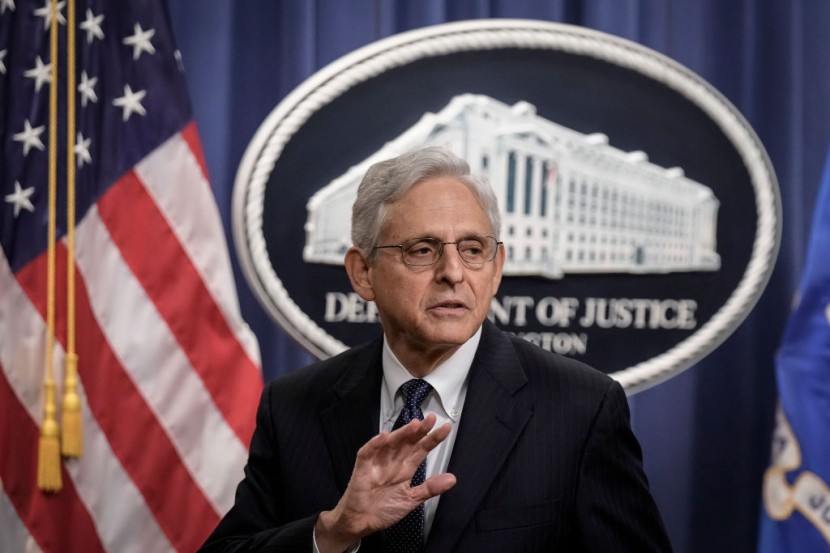
The Justice Department stated in a landmark court filing on Tuesday night that US government documents were "likely concealed and removed" from a storage space at Mar-a-Lago in attempts to "obstruct" the FBI's inquiry into the alleged improper handling of classified information by former President Donald Trump.
The Justice Department reported that more than 320 classified files, including more than 100 from the FBI search earlier this month, have now been seized from Mar-a-Lago. as per a CNN report.
The filing presents the Justice Department's strongest argument to date that Trump withheld classified material at Mar-a-Lago to hinder the FBI's investigation into possible mishandling of sensitive documents.
Countering Trump's Request for Special Master
The shocking new information was made public by the Justice Department as part of its effort to counter Trump's attempts to get involved in the federal investigation that resulted in the search of his Florida club and his request for the appointment of a "special master" to the case.
The Justice Department claimed that Trump's recent court papers regarding the Mar-a-Lago search had promoted an "incomplete and incorrect narrative."
According to the prosecution, the government presents a full recital of "the relevant facts, many of which are provided to correct the incomplete and incorrect narrative set forth in Plaintiff's filings."
Per a Time report, the Justice Department filing includes a lot of important new information about the investigation, but it does not answer the pivotal query that has captured the public's interest: why did Trump hold onto the documents after he left the White House and why did he and his team resist repeated requests to return them? It appears officials didn't receive an answer.
"Counsel for the former President offered no explanation as to why boxes of government records, including 38 documents with classification markings, remained at the Premises nearly five months after the production of the Fifteen Boxes and nearly one and a half years after the end of the Administration," the document claims of an FBI and Justice Department official's June 3 visit to Mar-a-Lago.
Read Also : Republicans Seek To Impeach Joe Biden, Search for Person Who Can Sue POTUS Over Student Loan Debt Policy
The Justice Department's subpoena for the records was issued weeks before the visit, which is given a lot of emphasis in the document and seems to be the main focus of the investigation.
Although Trump has claimed he declassified all the records at Mar-a-Lago, the document claims that during the visit, his attorneys handled the documents in a way that suggested they were still classified.
A Politicially Motivated FBI Raid?
Trump's house was seized by FBI officials earlier this month as part of a probe into whether he unlawfully kept national security-related papers at his home.
According to Attorney General Merrick Garland, the DOJ "did not take such a decision lightly" and that he personally approved the operation.
Trump has criticized the raid as being politically motivated, which is why he asked for an impartial assessment of the records the FBI obtained from his house via a "special master."
Last week, Trump's legal counsel wrote in their special request: "Politics cannot be allowed to impact the administration of justice.
President Donald J. Trump is the clear frontrunner in the 2024 Republican Presidential Primary and the 2024 General Election, should he decide to run. Law enforcement is a shield that protects Americans. It cannot be used as a weapon for political purposes."
Trump's request for a special master was submitted by the DOJ on Tuesday after Florida federal judge Aileen M. Cannon declared her "preliminary intent" to do so on Saturday. Additionally, it occurs before the move of Trump's hearing on Thursday, according to Fox News.
The former POTUS has also asked Cannon to stop the government from reviewing the materials it took from Trump's estate until a special master is chosen. Cannon has not yet agreed to that request.
Therefore, the DOJ may continue its study of the materials in the interim, as it stated in a second filing on Monday.
Related Article : Joe Biden Takes Swipe Against Republicans Over Criticisms About Mar-a-Lago Raid, Jan. 6 Investigation
© 2025 HNGN, All rights reserved. Do not reproduce without permission.




